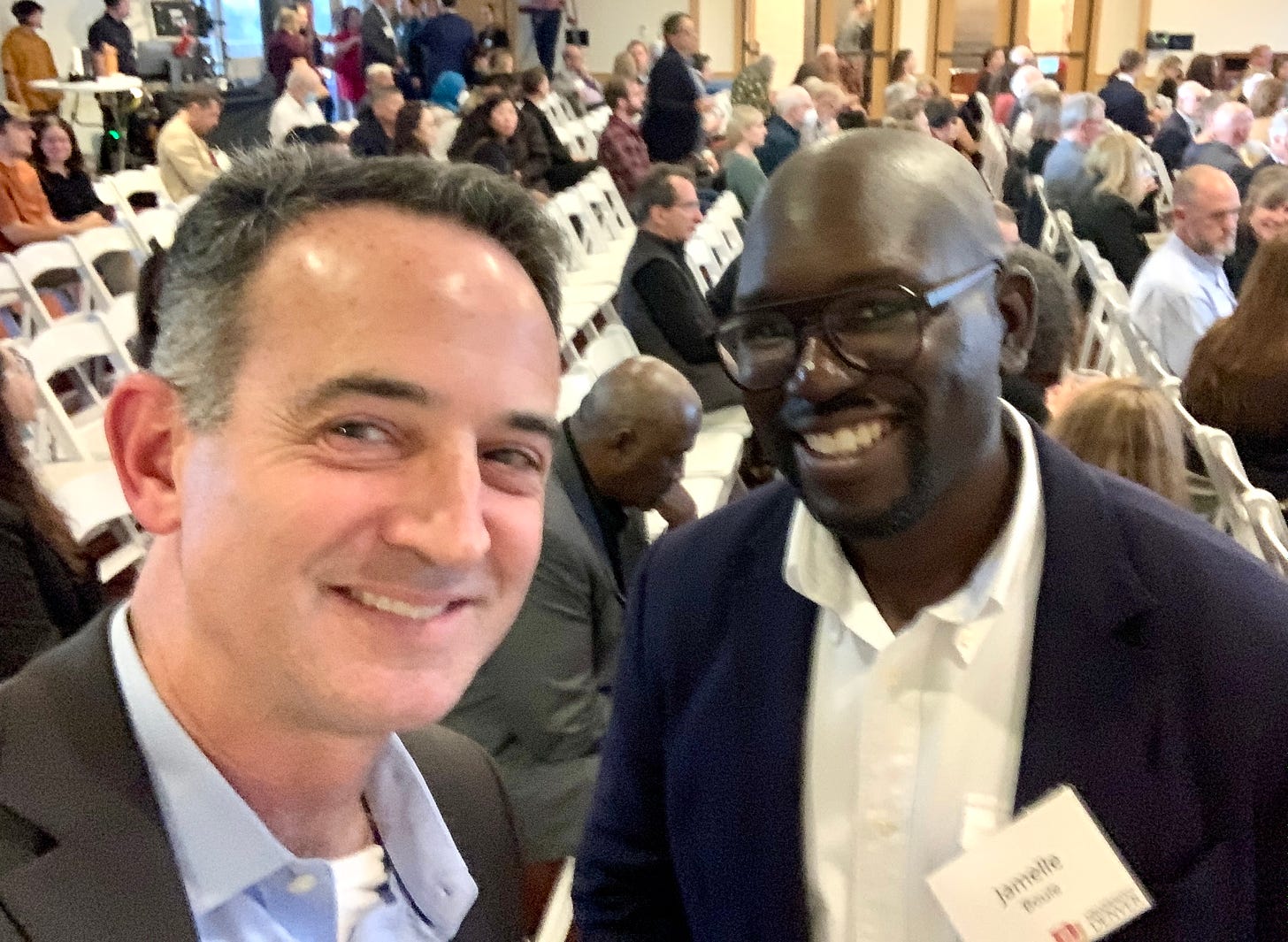Jamelle Bouie on U.S. democracy
Looking at the Constitution, Republican leadership struggles, and more
I recently hosted New York Times columnist Jamelle Bouie at the University of Denver’s Center on American Politics for a kickoff event for the Korbel School of International Studies’ Denver Democracy Summit. We had a great conversation lasting just over an hour — you can watch it all here — but I wanted to go over some of the highlights.
We started off with a brief discussion of the three-week standoff in the U.S. House over the selection of a Speaker. At the time of this conversation, Mike Johnson had been Speaker for about four hours. Bouie found the whole episode emblematic of where congressional Republicans have been for years, arguably since Newt Gingrich’s speakership — struggling with any semblance of collective action and unwilling to engage in the compromises necessary for governing. It’s questionable, Bouie said, whether a House Republican majority can even be said to exist, in the sense that it’s not clear that this majority is capable of any policy action; they’re only nominally able to pick a leader. He suggested that ordering a pizza with congressional Republicans would be a nightmare.
We also discussed the Constitution and its relationship to democracy. If you’ve been reading his work in the Times, you know that pretty central to his writing is the idea that the Constitution is not inherently a democratic document and that it contains a number of features — including the Electoral College, the Senate, the Supreme Court, even a bicameral legislative structure — designed to make the government less responsive to majorities in the electorate.
Bouie made the important point that Donald Trump’s attempts to overturn the 2020 presidential election all focused on the counter-democratic aspects of the Constitutional system, and that what largely thwarted Trump was “an ingrained sense that the winner of the vote should become president.” But at least according to a strict reading of the rules, sure, nothing prevents a state from just tossing out results they don’t like.
I asked him about Mitt Romney’s current position in the Republican Party — as a conservative Republican but also a critic of its anti-democratic swing and particularly of Donald Trump. I wanted to know if he saw this as a model for a pro-democratic path forward, and asked why more people aren’t following it.
He had considerable praise for Romney but also noted the high costs for other Republicans who follow this route. Republican elected officials who are critical of Trump (or even critical of some House Speaker candidates) often find themselves attacked, pilloried, censured, and sometimes fired, and sometimes even their lives and the lives of their families are threatened. Romney has enjoyed a strong base of support in Utah and has plenty of money to afford protection; many others do not have these buffers. There’s very little incentive for any other Republican to be like Mitt Romney.
A final question I had for Bouie was what democratic threats we often overlook. His answer here was fascinating: he said we might be focusing too much on democracy in elections, which we typically participate in once or twice a year, and not enough on democracy in other aspects of our lives. Schools and work places, for many of us, are often quite authoritarian, with arbitrary rules about where we need to be, for how long, what we can wear, whether we can wear headphones, etc., and with no ability to affect that. “We should think more,” he said, “about what it means to live in a democratic society beyond political democracy.”
Again, I encourage you to watch the whole conversation. And I urge you to check out the whole next day of the Denver Democracy Summit here. It included engaging discussions about the state of democracy around the world, the use of emerging technologies for democratic purposes, the administration of elections, and the roles of local media and the judiciary to protect democracy.





